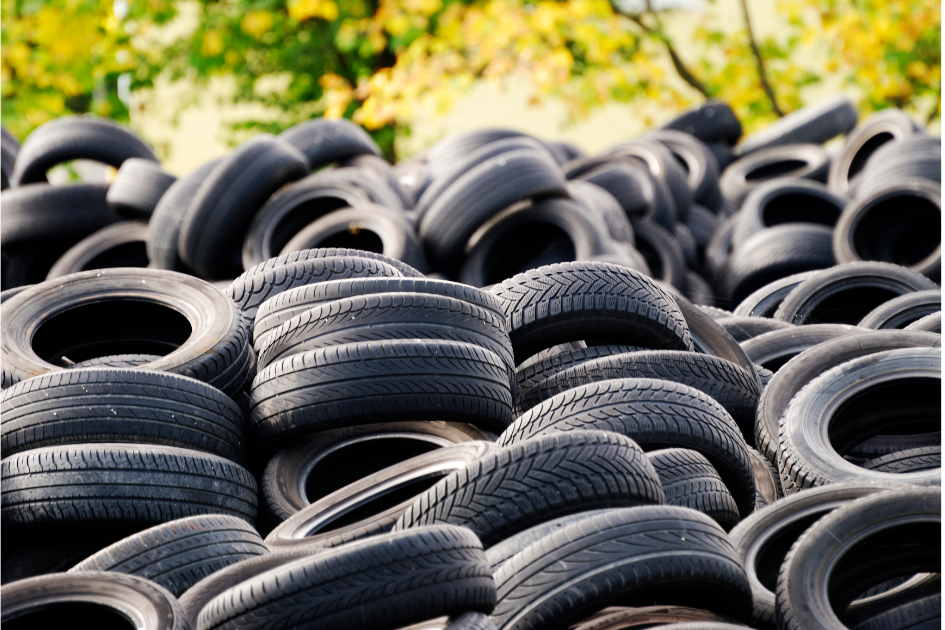A British farmer caught someone dumping 421 tires on his land. His revenge was poetic justice.
"I got sick of it, so I thought I would do a bit back."
An angry farmer and some illegally-dumped tires.
In 2020, a farmer outside of Liverpool, England, served up one of the most beautiful helpings of karma the world has ever seen, and people are still talking about it.
The saga began when Stuart Baldwin, then 56, visited his 2,500-acre farm and found that someone had dumped tires on his property—over 400 of them. Stuart and his family own SED Services Ltd, a recycling company that turns green waste into usable materials like compost.
Stuart was no stranger to illegal dumpers, or fly-tippers, as they call them in the UK, but this was unheard of, and he had to do something about it. So, he set up a security camera on his property to see if he could catch the guy.

"I was getting so angry with people fly-tipping on my land, it was time to do something about it, to take matters in our own hands. We put a camera up in the bushes and we caught the man who did it on the camera,” Stuart told the Manchester Evening News. “My daughter put a picture on Facebook and we found out who it was. He actually came forward,” he continued.

Being a gentleman, Stuart found out where the man lived and gave him days to come to his farm and pick up the tires. “He came down and he said he was going to move them, so I gave him the benefit of the doubt and a couple of days breathing–but he never moved them. I thought he must have forgot, so I took them back to remind him,” he told The Daily Mail.
In a video that later went viral, Stuart and his team loaded up all 421 tires onto a truck and then dumped them in front of the man’s house. Footage shows the tires rolling all over the front of the man’s house and bouncing into the street. “We have come to my land at Haydock, and somebody has put these tires here overnight. Luckily, we found out who has forgotten them, so we are going to take them back to the person who put them here, thank you,” Stuart says in the video.
- YouTube youtu.be
“We wish no harm to him or any property hence why we placed them in his garden without causing any damage, we just want to prove a point that you can't just go around fly-tipping wherever you want as it isn’t fair,” Stuart said. "I was so angry when I saw the tyres and I'm a big believer in karma—karma has got him here."
The act of perfect retribution done in the most fair way possible is a great message, and that’s probably why the story is still popular after all this time. The moral of the story is simple: take care of your own garbage; don’t make someone have to do it for you. If so, you may not like how he handles business.
"Nobody likes a fly-tipper. We've been inundated with congratulations since the video went online,” Stuart told the Manchester Evening News. "The response has been amazing, it's gone the right way for us."
This article originally appeared last year.

